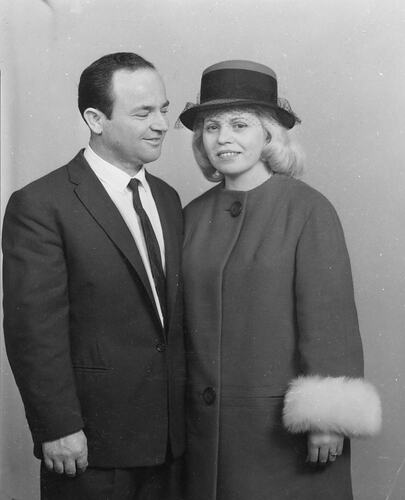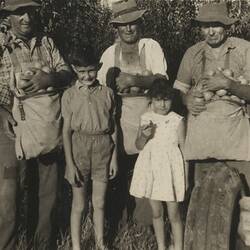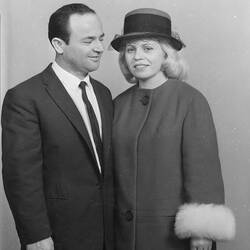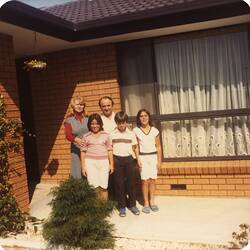Summary
Nebihat Div and Wilson Shkembi migrated from Albania via New Zealand in 1980.
Before settling in Melbourne in 1980, the Albanian Muslims, Nebihat and Wilson, lived in Christchurch (New Zealand). Nebihat went to New Zealand in 1964 when she married Wilson Shkembi, an Albanian Muslim from Korce in Albania. She was originally from Pristina, the capital city of Kosovo. Her husband Wilson, as a single man, left Albania for Greece and then came to Christchurch (New Zealand) in 1956. When he arrived in Christchurch he did not meet any Muslims, except a few single Albanians with whom he rented and shared a house while working. In the late 1950s they together bought a house adapting it into a masjid. It was largely forgotten that it was the first established mosque there. The Shkembi family celebrated Eid only within their family as there was no Muslim community. Soon they would buy a block of land for Islamic burials.
While living in Christchurch, Wilson had correspondence with Albanians in Melbourne, receiving their letters and informing him that there was the Albanian Muslim community in Victoria. When they moved to Melbourne there were a few hundred Albanian Muslims from Kosovo, Macedonia and Albania. They found Albanian mosques in Carlton and Shepparton. Wilson went regularly to the mosque and was a respectful member of the community. By visiting community places, they also met Bosnian and Turkish Muslims in Victoria.
Prior to migrating to Australia, Nebihat spent six years in Türkiye (formerly Turkey), working in the City Council of Izmir. Her father spoke the Osmanli language in Kosovo, and while she worked in Türkiye, she also learned the Turkish language. Speaking Turkish helped her in conversation with Turkish migrants in Victoria that she met.
They enjoyed their life in Melbourne, especially within the Albanian community. While raising their children, they always considered Islam as an important part of their Albanian and Australian-Muslim identity. Wilson and Nebihat supported the education of their children, but maintained that home education was the most important form. By attending Islamic festivals, sharing traditional Albanian food with the Albanian community members, and introducing it to the neighbourhood of various backgrounds, they were able to build cherished friendships.
Based on Dzavid Haveric's interview with Nebihat Shkembi, 2017.
More Information
-
Keywords
-
Authors
-
Article types



